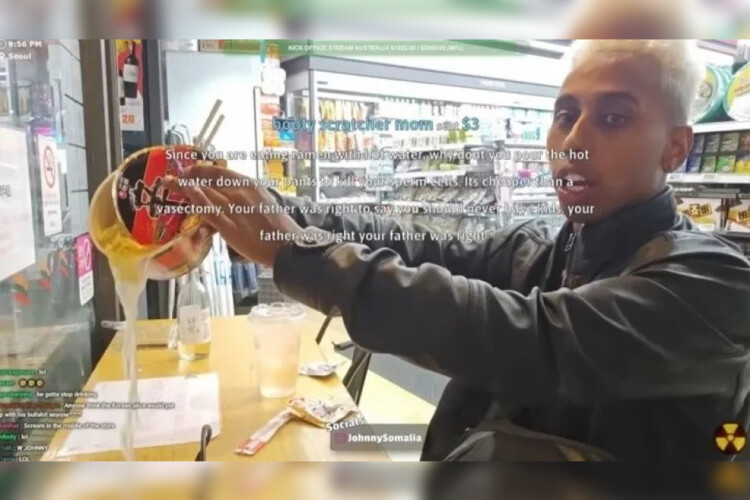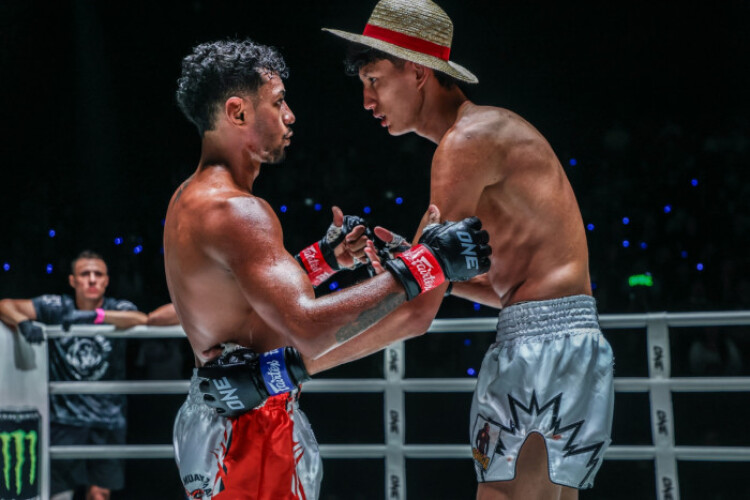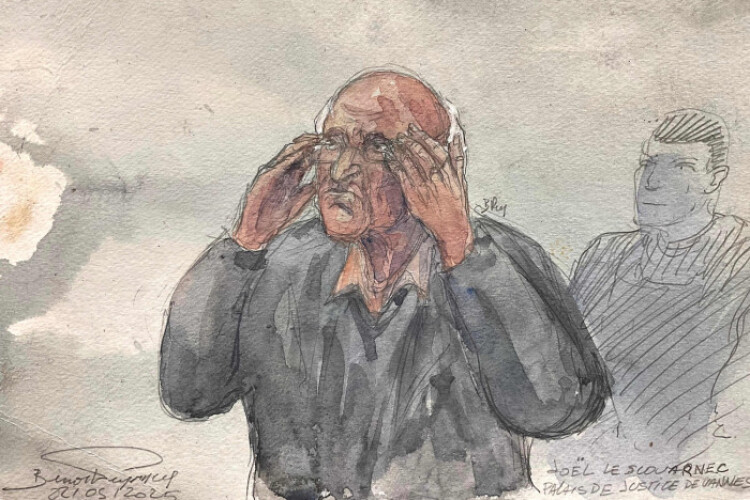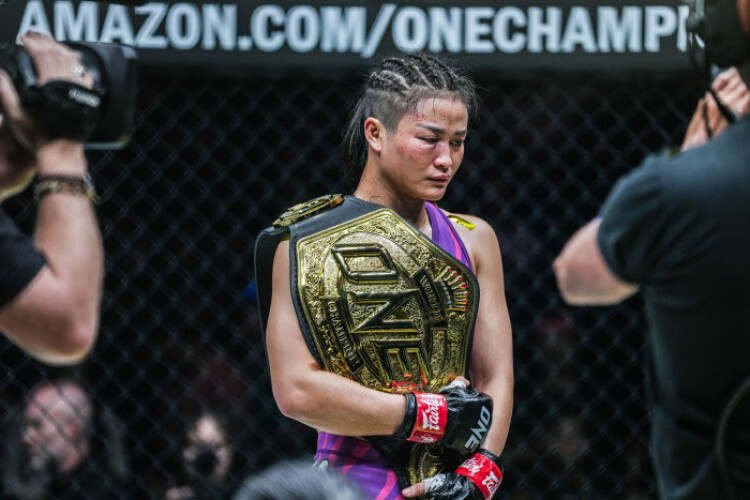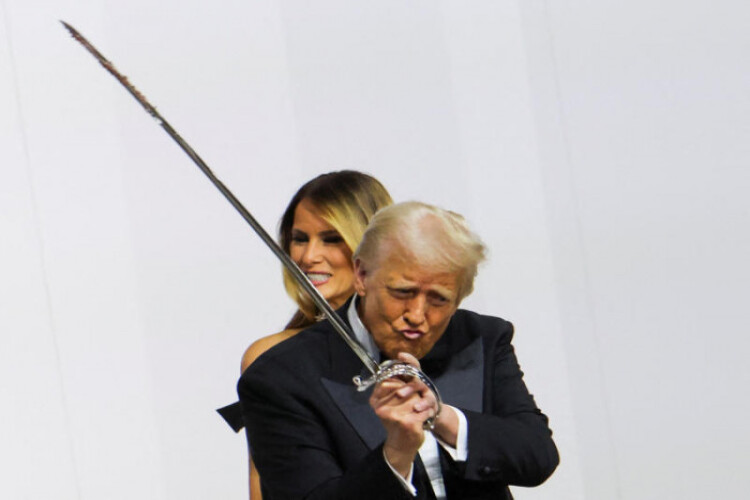
WASHINGTON — United States President Donald Trump signed a bill to force social media companies to remove non-consensual sharing of explicit sexual imagery online, calling it a "horribly wrong" situation.
"With the rise of AI image generation, countless women have been harassed with deepfakes and other explicit images distributed against their will," Trump said Monday at a signing ceremony at the White House Rose Garden.
Trump said that under the law, "anyone who intentionally distributes explicit images without the subject's consent will face up to three years of prison. In addition, this law establishes new civil liabilities for online platforms that refuse to take these images down promptly upon request. We will not tolerate online sexual exploitation."
He was joined by first lady Melania Trump, a champion of the legislation, and he praised her role in helping secure the measure's passage.
The first lady hailed the bill as a "victory that will help parents and families protect children from online exploitation."
“This legislation is a powerful step forward in our efforts to ensure that every American, especially young people, can feel better protected from their image or identity being abused through non-consensual intimate imagery,” she said.
The Take It Down Act criminalises the publication of non-consensual sexual content, including images known as deepfakes that are produced with the use of artificial intelligence (AI). It forces social media and websites to remove such content within 48 hours of a victim’s request and make efforts to take down copies of the images to halt their spread.
The bill passed with overwhelming support from Republicans and Democrats, marking a rare instance of Congress approving legislation to police online content. The legislative push was aided by the support of the first lady and the president, who had urged its passage during an address earlier this year to Congress.
During Trump's first term, the first lady launched 'Be Best,' an expansive initiative focused on child well-being that also touched on issues such as drug use, online safety, and bullying. In March, she hosted a roundtable with lawmakers, revenge porn victims and advocates for online safety, using the event to warn about risks to privacy.
Major tech companies, including Meta Platforms Inc, whose apps include Facebook and Instagram, and Alphabet Inc's Google offered support for the bill, highlighting the pressure facing the industry and Congress to make the internet safer for young people. Linda Yaccarino, the chief executive officer of X, formerly Twitter, was at the signing ceremony.
Critics of the legislation have raised concerns it could threaten online free speech, but advocates say the language is tailored to uphold First Amendment rights. The proliferation of revenge porn and deepfakes has exploded and left law enforcement struggling to keep up due to what critics say are outdated laws.
Trump invited Elliston Berry, a victim of deepfake pornography, to his March address to a joint session of Congress to draw attention to the issue. Republican US Senator Ted Cruz of Texas, who co-sponsored the original version of the bill, has cited Berry’s struggles in getting Snapchat to take down an AI-generated deepfake, as motivating him to take action.
Trump in his address to Congress had said he was "going to use that bill for myself too if you don't mind."
"Nobody gets treated worse than I do online," the president said.
"With the rise of AI image generation, countless women have been harassed with deepfakes and other explicit images distributed against their will," Trump said Monday at a signing ceremony at the White House Rose Garden.
Trump said that under the law, "anyone who intentionally distributes explicit images without the subject's consent will face up to three years of prison. In addition, this law establishes new civil liabilities for online platforms that refuse to take these images down promptly upon request. We will not tolerate online sexual exploitation."
He was joined by first lady Melania Trump, a champion of the legislation, and he praised her role in helping secure the measure's passage.
The first lady hailed the bill as a "victory that will help parents and families protect children from online exploitation."
“This legislation is a powerful step forward in our efforts to ensure that every American, especially young people, can feel better protected from their image or identity being abused through non-consensual intimate imagery,” she said.
The Take It Down Act criminalises the publication of non-consensual sexual content, including images known as deepfakes that are produced with the use of artificial intelligence (AI). It forces social media and websites to remove such content within 48 hours of a victim’s request and make efforts to take down copies of the images to halt their spread.
The bill passed with overwhelming support from Republicans and Democrats, marking a rare instance of Congress approving legislation to police online content. The legislative push was aided by the support of the first lady and the president, who had urged its passage during an address earlier this year to Congress.
During Trump's first term, the first lady launched 'Be Best,' an expansive initiative focused on child well-being that also touched on issues such as drug use, online safety, and bullying. In March, she hosted a roundtable with lawmakers, revenge porn victims and advocates for online safety, using the event to warn about risks to privacy.
Major tech companies, including Meta Platforms Inc, whose apps include Facebook and Instagram, and Alphabet Inc's Google offered support for the bill, highlighting the pressure facing the industry and Congress to make the internet safer for young people. Linda Yaccarino, the chief executive officer of X, formerly Twitter, was at the signing ceremony.
Critics of the legislation have raised concerns it could threaten online free speech, but advocates say the language is tailored to uphold First Amendment rights. The proliferation of revenge porn and deepfakes has exploded and left law enforcement struggling to keep up due to what critics say are outdated laws.
Trump invited Elliston Berry, a victim of deepfake pornography, to his March address to a joint session of Congress to draw attention to the issue. Republican US Senator Ted Cruz of Texas, who co-sponsored the original version of the bill, has cited Berry’s struggles in getting Snapchat to take down an AI-generated deepfake, as motivating him to take action.
Trump in his address to Congress had said he was "going to use that bill for myself too if you don't mind."
"Nobody gets treated worse than I do online," the president said.




